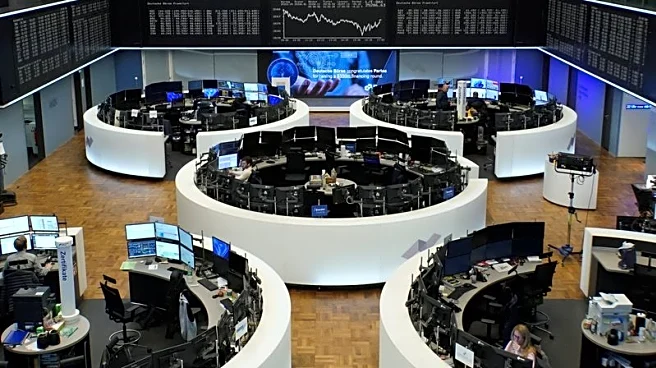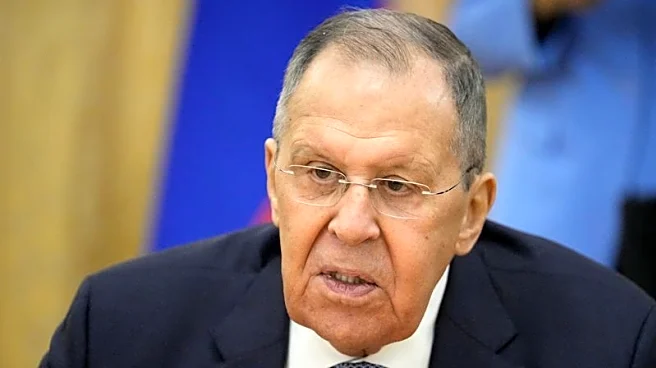Rapid Read • 8 min read
President Trump has imposed new tariffs on several U.S. trading partners, including Canada, Brazil, India, and Taiwan, following his self-imposed deadline of August 1. This decision has reignited concerns about the potential impact on the global economy, with U.S. consumers expected to bear significant costs. Despite these developments, the U.S. economy has shown resilience, with the stock market remaining near record levels. However, recent U.S. jobs data and the president's actions, such as firing the official in charge of labor market data, have raised concerns about future economic stability.
AD
The imposition of tariffs by President Trump could have significant implications for the U.S. economy and global trade. While the economy has shown resilience, the tariffs are expected to increase consumer prices and affect business confidence. The potential for retaliatory measures from affected countries could further disrupt international trade. U.S. companies have been stockpiling goods to mitigate the impact, but as these stockpiles deplete, prices may rise. The situation underscores the unpredictability of trade policies under President Trump and the potential for economic instability.
As the tariffs take effect, U.S. businesses and consumers may face higher prices, potentially impacting economic growth. The president's erratic trade policies could lead to further uncertainty in the job market and investment. Stakeholders, including businesses and political leaders, will likely monitor the situation closely, seeking to negotiate deals to mitigate the impact. The potential for further tariff escalations remains, and the long-term effects on the U.S. economy and global trade relations are yet to be fully realized.
The broader implications of President Trump's tariff policies include potential shifts in international trade dynamics and economic alliances. The historical context of protectionist policies, such as the Smoot-Hawley tariffs, serves as a cautionary tale of the risks associated with such measures. The current situation highlights the delicate balance between national economic interests and global trade cooperation, with significant consequences for both domestic and international stakeholders.
AD
More Stories You Might Enjoy











